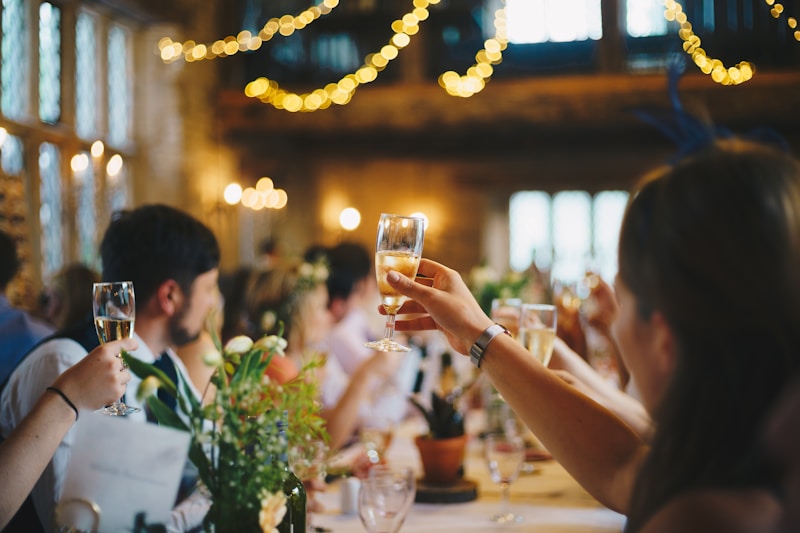Exploring Heritage Celebrations: A Rich Tapestry of Cultural Traditions
Understanding Heritage Celebrations
Heritage celebrations are vibrant and meaningful events that honor and showcase the cultural traditions and historical narratives of a community. These celebrations vary greatly depending on geographical location, historical background, and social dynamics. They serve as a vital link between generations, helping to ensure that cultural identity and communal bonds are preserved. In this article, we will delve into the significance, types, and examples of heritage celebrations across the globe, while also discussing their impact on community cohesion and cultural identity.
The Importance of Heritage Celebrations
Heritage celebrations are significant for several reasons:
- Cultural Identity: They allow individuals to connect with their roots, fostering a sense of belonging and pride in their heritage.
- Community Bonding: These celebrations bring people together, strengthening relationships within communities.
- Education: They provide an opportunity for younger generations to learn about their history and cultural practices.
- Tourism: Heritage events often attract tourists, contributing to the local economy and promoting cultural exchange.
Types of Heritage Celebrations
There is a diverse array of heritage celebrations around the world, each unique to its specific cultural or historical context. Below are some prominent types:
| Type | Description |
| Festivals | Large-scale events celebrating specific cultural traditions, such as Diwali in India or Carnaval in Brazil. |
| Anniversaries | Commemorative events celebrating significant historical milestones, like Independence Day in various countries. |
| Religious Observances | Celebrations linked to specific faiths, such as Eid al-Fitr for Muslims or Hanukkah for Jews. |
| Local Traditions | Unique customs like the Day of the Dead in Mexico or the Midsummer festival in Sweden. |
Examples of Heritage Celebrations Around the World
Below are some captivating examples of heritage celebrations that exemplify the cultural richness and diversity across different regions:
1. Dia de los Muertos (Day of the Dead) - Mexico
Dia de los Muertos is a colorful and deeply meaningful celebration honoring deceased loved ones. This UNESCO-recognized event takes place on November 1st and 2nd, where families create altars (ofrendas) adorned with photographs, flowers, and favorite foods of the dearly departed. The festival blends indigenous traditions with Catholicism, creating a unique cultural tapestry.

2. Diwali - India
Diwali, also known as the Festival of Lights, is celebrated by millions of Hindus, Sikhs, and Jains across the globe. Typically observed in October or November, it symbolizes the victory of light over darkness and good over evil. Festivities include lighting oil lamps, decorating homes, exchanging sweets, and firework displays, creating a sense of unity and joy.
3. Oktoberfest - Germany
Oktoberfest is the world’s largest Volksfest, held annually in Munich. Running for 16 to 18 days from late September to the first weekend in October, the festival celebrates Bavarian culture through traditional music, food, and, most notably, beer. It attracts millions of visitors, making it a significant event for both locals and tourists.
4. Chinese New Year - China
Chinese New Year, or Spring Festival, is one of the most celebrated holidays in Chinese culture. The date varies as it is based on the lunar calendar, usually falling between January 21 and February 20. Festivities include family reunions, feasting, dragon and lion dances, and fireworks, all of which are intended to usher in good fortune for the coming year.
The Impact of Heritage Celebrations on Communities
Heritage celebrations have a profound effect on local communities. They not only help preserve cultural traditions but also promote social cohesion. When individuals gather to celebrate their heritage, they create a shared sense of identity and history. This communal spirit fosters tolerance and understanding among diverse groups, especially in multicultural societies. Additionally, heritage events can bolster local economies through tourism, providing businesses with an opportunity to thrive during these festivities.
Challenges Facing Heritage Celebrations
While heritage celebrations offer invaluable benefits, they are not without challenges. Globalization poses a threat to many traditional practices as cultures intermingle and sometimes dilute original customs. Additionally, urbanization can lead to a decline in participation in local festivities as people migrate to larger cities in search of economic opportunities. Preserving these celebrations in the face of modern challenges requires a concerted effort from community leaders, governments, and individuals alike.
Suggestions for Promoting Heritage Celebrations
To ensure that heritage celebrations remain vibrant and relevant in contemporary society, consider the following suggestions:
- Education: Incorporate local history and cultural education in school curricula to instill pride in students' heritage.
- Community Involvement: Encourage local residents to partake in the planning and organizing of heritage events, ensuring that the events reflect the community's identity.
- Collaboration: Partner with cultural institutions and local businesses to promote and support heritage celebrations.
- Innovation: Adapt heritage celebrations to include modern elements, appealing to younger audiences while keeping traditional aspects alive.
Conclusion
Heritage celebrations are more than mere events; they are a vital expression of cultural identity and community resilience. As societies continue to evolve, it is crucial to recognize the importance of preserving these traditions for future generations. By actively participating in and promoting heritage celebrations, we can ensure that our rich cultural diversity remains a source of pride and unity. Remember, it only takes a small effort to make a big impact in preserving the rich tapestry of our shared human experience.
In summary, whether it's through festivals, anniversaries, or local traditions, engaging with heritage celebrations can enrich our lives and foster a greater appreciation for the world we inhabit. Let us continue to celebrate our diverse backgrounds and honor the legacies that define us.